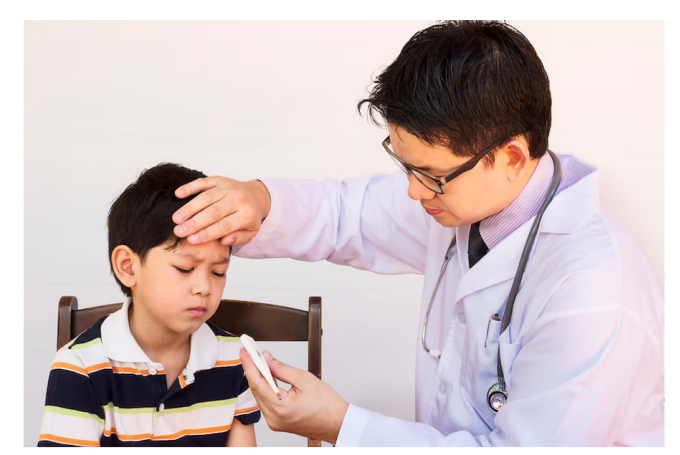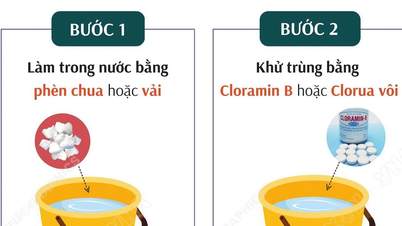In the summer, children have long vacations, play frequently and come into contact with sand and dirt, increasing the risk of worm infection. Deworming helps children increase their resistance to many diseases and improve digestion.
Associate Professor, Dr. Vu Huy Tru, Head of the Pediatrics Department, Tam Anh General Hospital, Ho Chi Minh City, said that children tend to play in contact with sand and dirt a lot and have poor hygiene, leading to the risk of worm infection. When this happens, children often have digestive disorders, slow growth, and reduced resistance.
Worms can stray to organs in the body causing bile duct obstruction, intestinal obstruction, meningitis, cardiovascular disorders, pneumonia, enteritis... In girls, worms can penetrate the genitals causing infection.
Children infected with worms may have symptoms such as digestive disorders, weight loss, malnutrition, itching or hives, itching in the anal area...

Summer increases the playing conditions, making children susceptible to worms, causing fever, digestive disorders, weight loss, malnutrition... Photo: Freepik
Parents should choose summer to periodically deworm their children. "Deworming every 6 months helps children limit digestive disorders, prevent diseases caused by worm infections, increase nutrient absorption, and increase resistance to prevent infectious diseases," Associate Professor, Dr. Tru emphasized.
The commonly used deworming medicine is mefbendazole. Children 24 months and older take a single dose of 500 mg. Parents should give their children deworming medicine when hungry or after a full meal. For children with chronic diseases such as congenital heart disease, chronic kidney disease, liver failure... or children with fever, deworming requires a doctor's prescription.
For children with sensitive or allergic constitutions, deworming medicine can have some side effects such as dizziness, headache, etc. When the above symptoms appear, children need to be given water, sugar water, milk. In case of vomiting or hives, children need to be taken to the hospital.
In addition, adults in the family should also regularly deworm to prevent cross-infection. In addition, the family needs to regularly clean the living environment, prevent waste, prevent flies and cockroaches. If raising animals, they also need to deworm regularly, do not let animals defecate indiscriminately.
Everyone should practice good hygiene in eating and drinking, eating cooked food and drinking boiled water; washing hands before eating and going to the toilet. Parents should guide and train children to clean properly after going to the toilet to avoid worm infection.
Nostalgia
Source link





![[Photo] Hanoi morning of October 1: Prolonged flooding, people wade to work](https://vphoto.vietnam.vn/thumb/1200x675/vietnam/resource/IMAGE/2025/10/1/189be28938e3493fa26b2938efa2059e)



























![[Photo] Panorama of the cable-stayed bridge, the final bottleneck of the Ben Luc-Long Thanh expressway](https://vphoto.vietnam.vn/thumb/1200x675/vietnam/resource/IMAGE/2025/9/30/391fdf21025541d6b2f092e49a17243f)
![[Photo] President Luong Cuong receives President of the Cuban National Assembly Esteban Lazo Hernandez](https://vphoto.vietnam.vn/thumb/1200x675/vietnam/resource/IMAGE/2025/9/30/4d38932911c24f6ea1936252bd5427fa)

























































Comment (0)